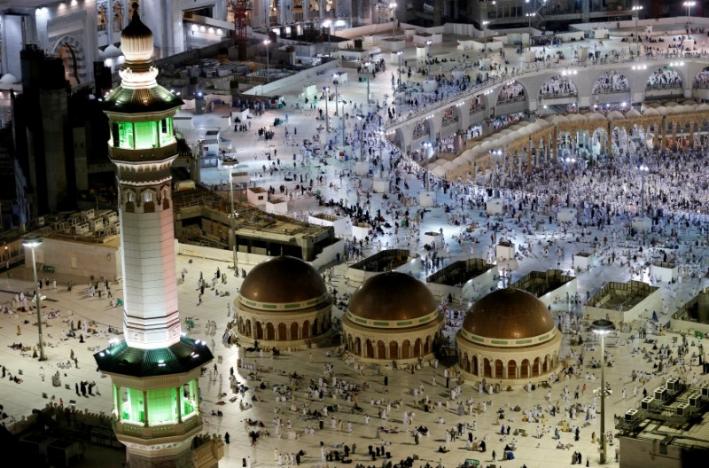A series of measures were announced on Monday by Saudi Arabia in order to mitigate the spread of COVID-19 as the annual Haj pilgrimage is set to begin later this month. Only around 1,000 domestic attendees will be allowed by the Kingdom and touching Islam's sacred monument, the Kaaba will also be banned.
It was expected that nearly two million people would journey to Mecca and Medina this year for the annual pilgrimage. However, only residents of Saudi Arabia will be permitted to travel to the holy site this year.
Residing Within Saudi Mandatory
Social distancing will also be imposed among the visiting pilgrims. In normal times the pilgrimage is one of the most significant moments in the Muslim religious calendar.

Monday's development came as Saudi Arabia reported a total of 209,509 COVID-19 cases, while the death toll stands at 1,916. Last month, Saudi Arabia had announced that due to the coronavirus pandemic, only a "very limited number" of people will be allowed to take part in this year's Haj pilgrimage.
So while this year's Haj will include non-Saudis, those individuals must already reside inside the borders of the Kingdom to be eligible. This is not the first time Saudi Arabia has restricted participation in the pilgrimage.
An Important Source of Income
Between 2014 and 2016, Muslim faithful from the Democratic Republic of the Congo and several other African countries were excluded from the Haj due to Ebola. The Haj represents an important source of income, typically generating between $5.3 billion and $6.9 billion for the local economy, according to Mecca's chamber of commerce.
In 2019, nearly 2.5 million Muslims performed the Haj, including more than 600,000 Saudis, according to official figures. The annual pilgrimage is one of the five pillars of Islam, which every Muslim must perform at least once if his or her physical and economic state allows.
(With inputs from agencies)








